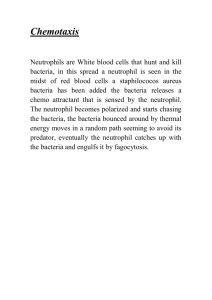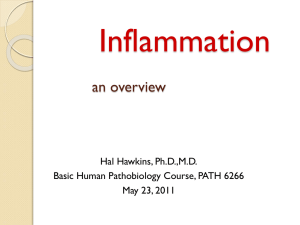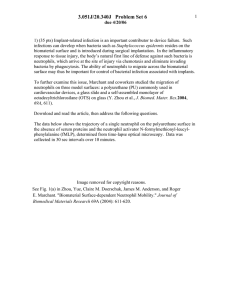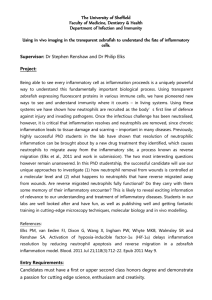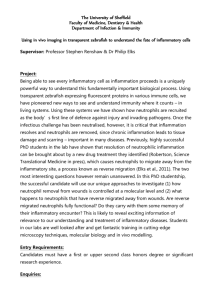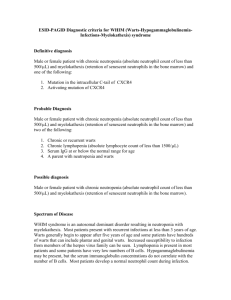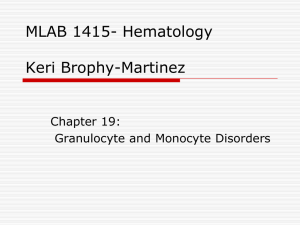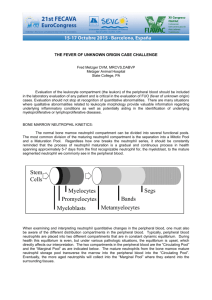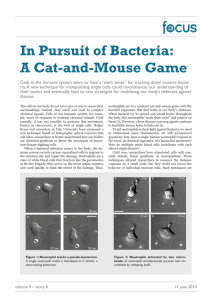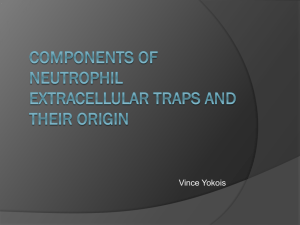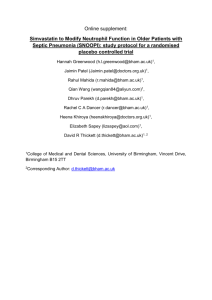My Favorite Cell: Neutrophil production and function
advertisement
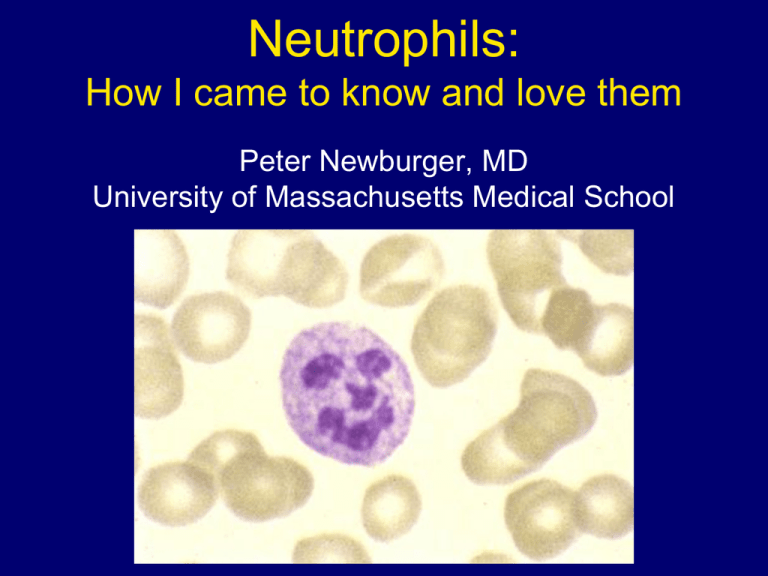
OurNeutrophils: How I came to know and love them Peter Newburger, MD University of Massachusetts Medical School Cell: OurFavorite My Neutrophil function Neutrophils – blood smear Neutrophil – electron micrograph Neutrophils – scanning EM Neutrophil in real time Ilya Ilyich Mechnikov and the thorn in the starfish (1883) One day when the whole family had gone to a circus to see some extraordinary performing apes, I remained alone with my microscope, observing the life in the mobile cells of a transparent star-fish larva, when a new thought suddenly flashed across my brain. It struck me that similar cells might serve in the defence of the organism against intruders. Feeling that there was in this something of surpassing interest, I felt so excited that I began striding up and down the room and even went to the seashore in order to collect my thoughts. I said to myself that, if my supposition was true, a splinter introduced into the body of a star-fish larva, devoid of blood-vessels or of a nervous system, should soon be surrounded by mobile cells as is to be observed in a man who runs a splinter into his finger. This was no sooner said than done. There was a small garden to our dwelling, in which we had a few days previously organised a 'Christmas tree' for the children on a little tangerine tree; I fetched from it a few rose thorns and introduced them at once under the skin of some beautiful star-fish larvae as transparent as water. I was too excited to sleep that night in the expectation of the result of my experiment, and very early the next morning I ascertained that it had fully succeeded. That experiment formed the basis of the phagocyte theory, to the development of which I devoted the next twenty-five years of my life. — Elie Metchnikoff 'Uber die Pathologische Bedeutung der Intracellularen Verduung', Fortschritte der Medizin (1884), 17, 558-569. Trans. Alfred I. Tauber and Leon Chernyak, Metchnikoff and the Origins of Immunology (1991), 141 Mechnikov: Macrophages and “microphages” eat bacteria (1887) Mechnikov: Macrophages and “microphages” exit from blood vessels and eat bacteria (1887) Recruitment of Neutrophils During Inflammation 1. Free flow 2. Rolling Endothelial cells Bacteria Opsonins 3. Firm Adhesion Chemotaxis 5. 4. Phagocytosis/Bacterial Transmigration killing Neutrophil rolling and adhesion Neutrophil rolling and adhesion Ingestion (phagocytosis) and Degranulation Neutrophil granule contents Oxidative killing O2 ־+ O2 → ־H2O2 + O2 hydrogen peroxide H2O2 + Cl → ־HOCl + H2O hypochlorous acid Superoxide-generating system 2O2 2O2_ Extracellular space or phagosome Heme 2e_ FAD NADPH Cytoplasm NETs: Neutrophil Extracellular Traps Bacteria trapped in NETs Staph aureus E. coli Neutrophils also cause inflammation and tissue damage Normal aortic valve Neutrophils also cause inflammation and tissue damage Aortic valve after Staph infection Neutrophils also cause inflammation and tissue damage Arthritis in man … … and his best friend
